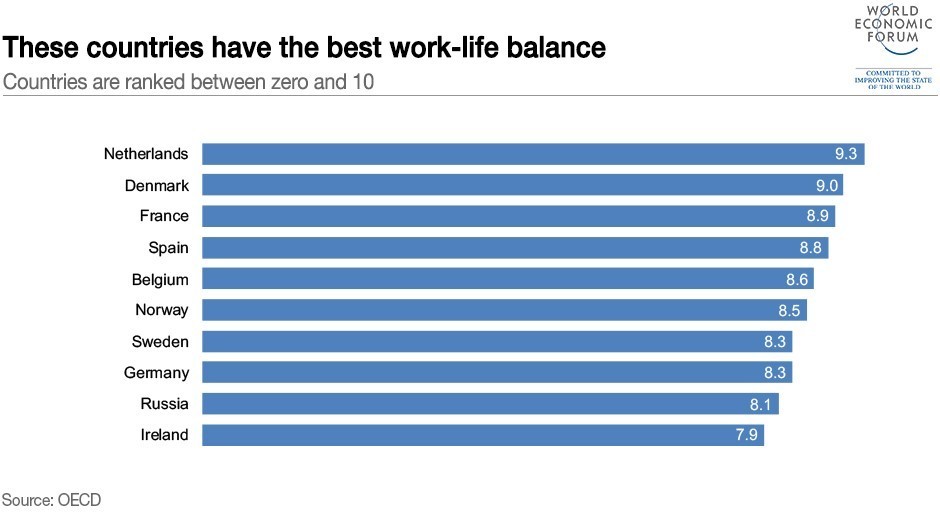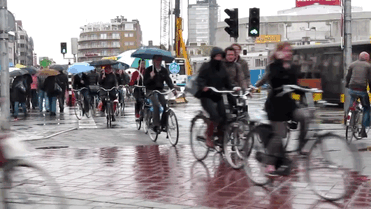Unlocking the Dutch Secret to Blissful Busyness
In today's fast-paced and interconnected world, many people are trapped in a perpetual state of busyness. The constant demands of work, family, and social commitments often leave us feeling overwhelmed and longing for a more straightforward, more balanced way of life. Surprisingly, a solution to this modern problem has emerged from an unexpected source: the Netherlands. With their unique approach to work, leisure, and personal well-being, the Dutch have captivated the world with their ability to find a harmonious balance amidst the chaos.
At the heart of their solution lies a profound commitment to a healthy work-life balance. Unlike many countries where long working hours and relentless schedules reign supreme, the Netherlands values leisure time and personal well-being above all else.
Picture this: a typical Dutch worker revels in an average workweek of around 29 hours. Yes, you read that right. While others toil for countless hours, the Dutch have embraced the notion that productivity and fulfillment can be achieved without sacrificing precious moments with loved ones or neglecting personal passions. Dedicating fewer hours to work creates ample opportunities to connect with family, pursue hobbies, and embark on soul-enriching study and adventures.
This emphasis on personal pursuits translates into higher satisfaction levels and reduced stress, proving that life is meant to be enjoyed inside and outside the workplace.
The Dutch approach to work-life balance goes beyond just the number of hours spent on the job. It encompasses a fundamental shift in mindset. Rather than glorifying constant busyness and measuring success solely by how much one accomplishes, the Dutch embrace a mindful approach to work. They recognize that it's not about how many hours you put in but about the quality and effectiveness of those hours.
In the Netherlands, efficiency and productivity precede the illusion of busyness. The Dutch ensure that their time is well-spent by prioritizing outcomes, setting realistic goals, and focusing on meaningful work. This deliberate and purposeful approach minimizes unnecessary stress and allows them to create space for moments of reflection, creativity, and innovation.
The Netherlands is renowned for its impressive achievements, including remarkably low levels of unemployment among young people, exceptional literacy rates, below-average child income poverty rates, and an abundance of childhood happiness. For instance, a staggering 93% of children aged 11-15 express above-average life satisfaction
Beyond work, the Dutch have mastered savoring life's simple pleasures. Their commitment to leisure and personal well-being extends to all aspects of their existence. Instead of rushing from one obligation to the next, they embrace a slower pace, immersing themselves in the beauty of the present moment. This can be witnessed in their love for gezelligheid, a quintessentially Dutch concept that embraces coziness, friendliness, and the joy of shared experiences.
Another aspect of the Dutch solution to busyness is their transportation choices. The Netherlands is renowned for its extensive cycling infrastructure, making cycling a popular mode of transportation for daily commuting. Instead of rushing through traffic jams or dealing with the stress of finding parking spaces, the Dutch opt for cycling, reducing congestion and promoting physical activity and mental well-being. This emphasis on active transportation helps them incorporate exercise into their daily routines, enhancing their work-life balance.
Moreover, the Dutch prioritize social connections and community-building. They understand that nurturing relationships is essential for a fulfilling life. Whether gathering with friends in cozy cafes, joining local clubs, going to church, or engaging in regular social activities, the Dutch place a premium on human connection. By fostering a sense of community and support, they build a network that acts as a buffer against the stresses of a busy life, creating a solid foundation of happiness and well-being.
The Dutch recognize the importance of rest and recreation. They have mastered the art of taking regular breaks during the workday and throughout the year. Vacations are cherished, and leisure activities are seamlessly integrated into their routines. By valuing rest, the Dutch recharge their batteries, gain perspective, and guard against burnout. This intentional commitment to self-care enhances productivity and creativity and allows them to enjoy a more balanced and fulfilling existence.





